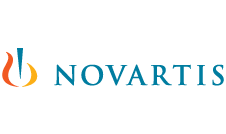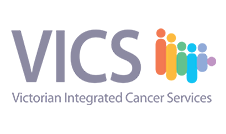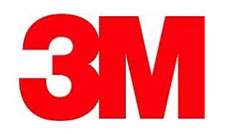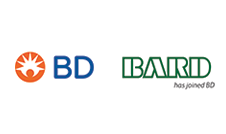
There will be six Pre-Congress Symposiums taking place on Thursday 20 June 2019 and these will be held at the Melbourne Convention and Exhibition Centre.
All symposiums are full day programs and will commence at 10am and conclude at approximately 4pm. Numbers are limited for each symposium so register early to avoid disappointment.
Please click on the symposiums below to read more details.
Cancer Nurse Wellbeing Symposium
Neuroendocrine Tumours (NETs) - not as rare as you think! The Complex Disease Course and Management
Care at the crossroads of cancer and age. Older people with cancer – a cancer nurse’s ‘need to know’
Skin in the game - protecting vulnerable skin and CVAD securement
Time for change: putting evidence into practice
Writing for Publication
Cancer Nurse Wellbeing Symposium
Description:
This proposed interactive workshop is based on a successful cancer nurses wellbeing workshop developed in Western Australia as part of a research initiative led by Professor Anne Williams. Results of the research to date have demonstrated a significant positive impact on improving the wellbeing of those cancer nurses in Western Australia who have attended. Stress levels were found to have decreased at one and six weeks following the workshop, happiness had increased and problem focused coping improved. Professor Williams proposes to run a modified version of this workshop at the CNSA Annual Congress workshop for cancer nurses from other Australian States.
The workshop will be based on a conceptual framework and curriculum developed through research in Western Australia specifically focusing on the wellbeing of cancer nurses. The content is contextualized to the cancer nursing environment:
1. Knowledge and Understanding: Wellbeing and stress (including self-assessment); Personal control and capacity (www.pst approach); Resilience and coping.
2. Organisational Culture and environment: Common values, beliefs and behaviours (including self-reflection); Culture and environment (Leadership and Teams); Relationships (Emotional Intelligence).
3. Strategies and Resources: Physical and mental health, Using the “www.pst” approach for real work issues; Self-assessment and support; Relaxation activities.
4. Self-Discipline and Motivation: Actually doing it!; Intrinsic/Extrinsic motivation; Self-determination theory.
Cancer nurses attending this pre-Congress symposium will;
1. Understand the impact of wellbeing and stress on personal control and capacity.
2. Reflect on strategies to develop and sustain resilience in self and others.
3. Identify leadership and team behaviours which promote positive nursing cultures and work environments.
4. Learn to use the www.pst approach for managing challenging situations/issues related to cancer nursing.
5. Increase awareness of self-care strategies to promote wellbeing and understand how to motivate themselves to enable regular self-care.
6. Decrease their stress and increase levels of happiness and positive coping (problem-focussed).
Click here to download the symposium program.
Neuroendocrine Tumours (NETs) - not as rare as you think! The Complex Disease Course and Management
Description:
In this symposium we will delve into this "less common" cancer, to unveil the complex nature of this cancer which has been too frequently misdiagnosed resulting in patients having advanced disease upon their diagnosis.
Leading specialists in Neuroendocrine Tumours will discuss topics such as Carcinoid Heart disease including surgical intervention, identifying and managing Carcinoid Crisis, changes to the Grading System, NETs and Hormonal syndromes, Genetics and dietary needs of the NET patient. There will also be practical sessions with injection techniques and the eShine program for co-ordination of care.
During the day the symposium will include the Consumer's story with participants having an opportunity to hear what it is like to live with this disease. Presentation and symptoms of NETs are so individualized which adds to the complexity of the disease and caring for NET patients.
The afternoon sessions will provide information on symptom management, exercise, the Survivorship Care Plan, The PLANET Registry, presenting preliminary results, which is being established nationally along with a patient App and updates of Unicorn Foundation projects and the "state of the nation" in the care of NETs.
Click here to download the symposium program.
Supported by:

Care at the crossroads of cancer and age. Older people with cancer - a cancer nurses 'need to know'.
Description:
By 2040, 58% of Australians with a personal history of cancer will be aged 70 years or older1. Unless nurses work in childhood or AYA cancer, the chances are they care for older people. The reason is that age is a major risk factor for cancer.
Older people with cancer are a large, diverse and growing group. The nationally endorsed Optimal Care Pathways describe the group as one of special needs. Their cancer treatment can be complex due to multiple considerations.
This workshop aims to
- improve attendees knowledge of the older person with cancer, from medical oncology, pharmacological and nursing perspectives.
- present current practice examples both locally and internationally
- encourage group discussion on potential identification of simple measures to improve nursing and supportive care for older people
1. https://www.cancer.org.au/content/pdf/News/MediaReleases/2018/Prevalence%20in%202040_FINAL.PDF

Skin in the game - protecting vulnerable skin and CVAD securement
Description:
This symposium will cover a combination of didactic and interactive sessions, the sessions being utilized are from Australian clinician researchers.
The symposium aims are:
- To understand the anatomy and physiology of the skin
- To increase knowledge of adverse events associated with the skin, CVAD dressings and securement for cancer patients , including risk factors, prevention and management.
- To develop an understanding of the need for a holistic and long-term approach to vascular access device choice.
- To enhance an awareness of current evidence and evidence-based guideline for vessel preservation and the selection of vascular access devices.

Time for change: putting evidence into practice
Description:
The participants in this symposium will develop an understanding of how to identify a clinical problem and introduce practice change, using an evidence-based practice approach.
- Identify the role of the nurse in evaluating and changing practice as the complexity of cancer care changes.
- Understanding the role of research to justify the need for change.
- Describe a clinical practice-based issue [bring your own practice-based issue]
- Undertake a problem analysis
- Understanding how to link patient reported outcomes to the practice change to promote sustainability.
- Develop an evidence-based practice project plan for the clinical issue.
- Develop an understanding of resource management – creating a timeline and budget
- Identify opportunities to undertake practice change activities within formal education pathways.

Writing for Publication
Description:
This symposium seeks to build on the publishing workshop presented at the 2018 CNSA Congress. It’s aimed at nurses who are new to publishing in a peer reviewed journal and those who wish to gain a more formal understanding of the publishing process.
It will provide discussion and learning to develop confidence in presenting your work for publication.
The majority of CNSA conference delegates are expert clinicians yet novice writers. This symposium will guide attendees through the steps to increase the likelihood of your work being accepted for publication. Topics covered will include; deciding how and what to write; barriers to writing and effective writing strategies; developing a manuscript, authorship; choosing an appropriate journal to submit your work; submission processes; etiquette and ethics of publishing; peer review; what editors and reviewers look for; common publishing pitfalls; how to deal with rejected manuscripts and tips for success.
At the end of this symposium attendees will have; a broader knowledge of the publication process; gained skills in writing and developing a manuscript and an understanding of the peer review process.

